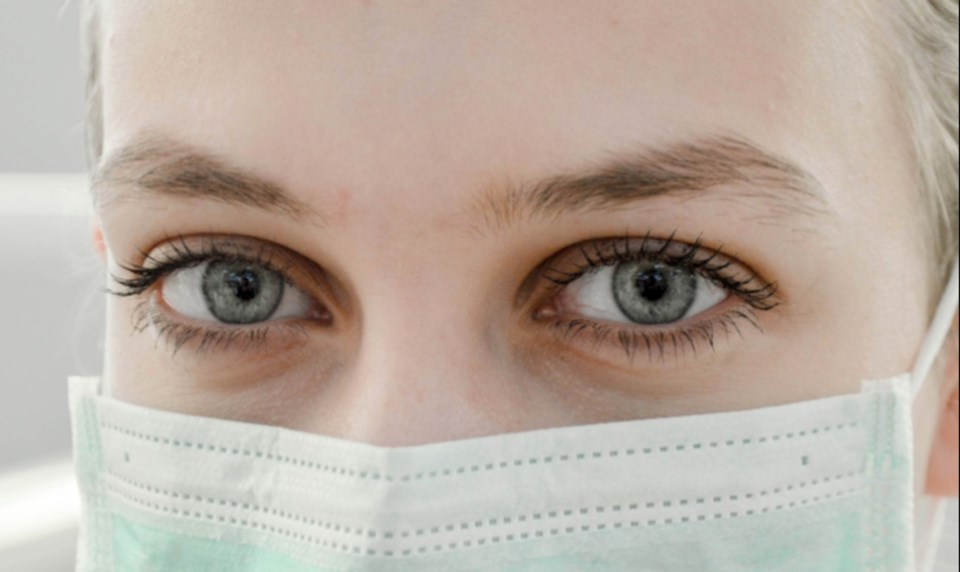OTTAWA — “Panic.” That’s what Ottawa immunosuppressed resident Julie Smith says she felt when she first heard COVID-19 had made its way to Ottawa on March 11.
“I was worried because I am a full-time Algonquin College student,” Smith, who describes herself as an extrovert, said. “I spend days in the crowded halls watching younger kids cough into their hands (and) then open a door, or put their mouths on water fountains. I knew the environment I was in was dangerous.”
Smith is on immunosuppressants at the request of her dermatologist to treat her hyperactive immune system and eczema. She also has asthma. This requires her to be extra careful — even dealing with a simple cold on any given day can be scary.
“Before I started on immunotherapy I’d get sniffles for a cold — I’d cough a couple of times, then I’d be done,” she explained. “Now that my immune system is suppressed, a cold knocks me out for days. My boyfriend jokes that I’m the only woman in the world who gets a man cold.”
She’s even been warned that a flu could land her in the hospital.
For Smith and others like her, living through a pandemic like COVID-19 with a compromised immune system can have a devastating impact not only on their daily lives, but on their physical and mental health as well.
That’s because the risk for severe infection is greater for them, Canadian epidemiologist Jason Tetro explains.
“In the case of a virus like SARS-CoV-2, the potential for a life-threatening illness is higher than those with regular or immunocompetent immunities,” he warned.
And while Smith takes every precaution — like washing her hands regularly, working from home and only leaving the house to do groceries, among a list of other things — her health is essentially in the hands of others and the decisions they make.
“The city and the (provincial and federal) government are doing very well,” Smith said. “I’m not worried about what the city is doing — I worry about what the rest of the population is doing. The city can only do so much short of chaining people inside their homes.”
“If there’s anything, I would say people who are acting foolhardy and assuming that they’re immune should be worried. They’re putting themselves at unnecessary risk, and by extension, the rest of the city.”
Immune systems like Smith’s have a hard time determining what is and isn’t a threat when something enters their bodies.
Essentially, when a body experiences anything foreign, the immune system is the checkpoint to make that determination, Tetro explains.
If there is a concern, then an immune response is triggered to expand and initiate a fight.
It’s a complicated process that involves a list of different proteins (like antibodies) and chemical messengers known as cytokines, as well as cells like dendritic cells, macrophages, B-cells and T-cells.
But with those who are immunocompromised, one ore more of these components is either not functioning or is suppressed due to a variety of factors, like prescribed medications, chemotherapy or medical conditions like HIV infections, multiple sclerosis and more.
“If the foreign object happens to be a virus, then the lack of a response can allow the virus to grow inside you and to spread,” Tetro said. “In the case of respiratory viruses — like the flu, RSV and coronaviruses like COVID-19 — this could lead to significant respiratory problems, including pneumonia, secondary bacterial infections and the life-threatening acute respiratory distress syndrome (ARDS).”
Following the measures put in place by the city, province and federal governments — like physical distancing, regular and vigorous hand-washing, avoiding unnecessary trips outside the home and self-isolating when symptoms are present —exist not only to protect the healthy, but people like Smith.
It’s especially critical for an Ottawa ER nurse who lives with primary immunodeficiency.
(Ottawa Matters spoke with an Ottawa nurse and has agreed to keep the nurse’s identity private for the safety of her job.)
The nurse, who works at a hospital in the city, says she feels her health has been put even more at risk since she and her co-workers were told to ration their protective equipment on the job.
This has forced her to make accommodations with her employer to work from home, a situation she describes as feeling like “house arrest.”
“Navigation of COVID-19 is like walking through a minefield,” she said. “But (I’m) trying to be supportive by doing some project work for the hospital and supporting the Ontario Nurses Association members — answering questions, checking in with them and updating them on the latest messages from the Ministry (of Health and Long-Term Care) and from the union leaders.”
Smith is also living on edge.
On top of worrying about herself, she’s worried about her parents, who are both 71, and her boyfriend.
“Whenever I’m faced with a situation that’s extremely stressful my mind flips into this almost clarity-style mode where I can reason, make decisions and react appropriately to things,” Smith described. “It’s after when I’m no longer in danger that I break down. I’m not looking forward to that.”
And while Smith says she can’t speak for all immunocompromised people in the city, she does know there is an air of worry that can be felt among many.
“I do know that a lot of us are terrified,” she said. “We don’t want to die. We want an equal chance at surviving as you do, but we need your help to do so.”
